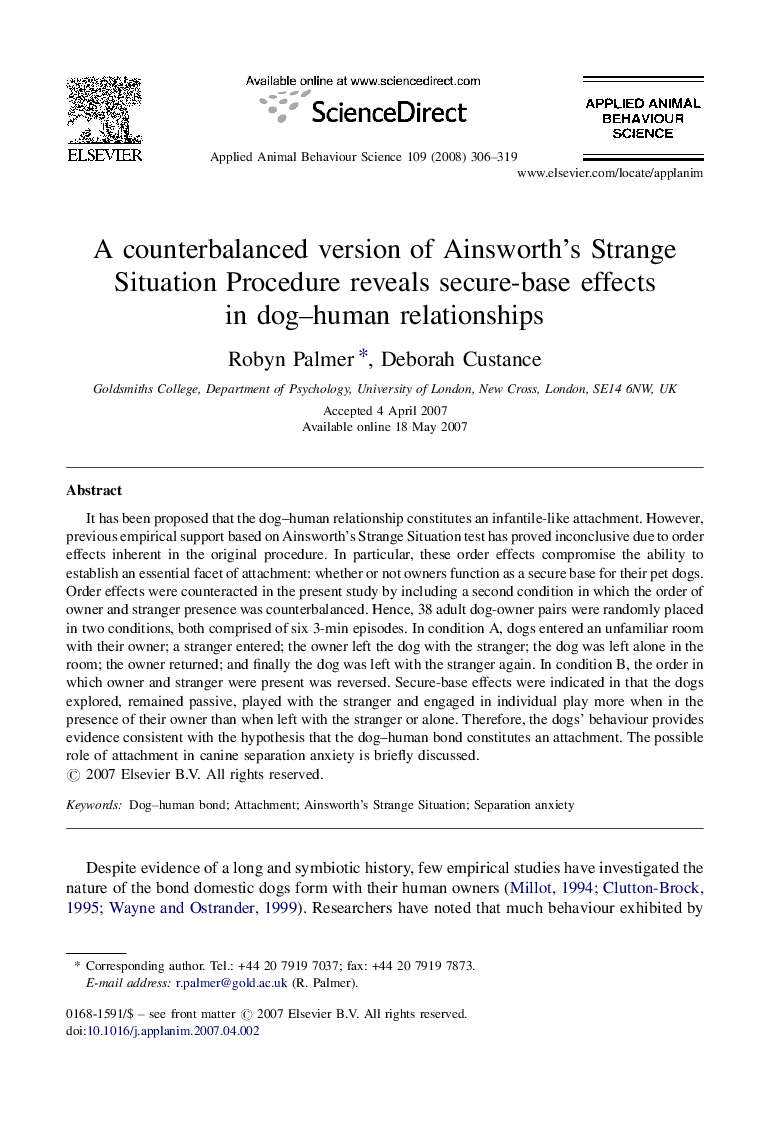| Article ID | Journal | Published Year | Pages | File Type |
|---|---|---|---|---|
| 6379772 | Applied Animal Behaviour Science | 2008 | 14 Pages |
It has been proposed that the dog-human relationship constitutes an infantile-like attachment. However, previous empirical support based on Ainsworth's Strange Situation test has proved inconclusive due to order effects inherent in the original procedure. In particular, these order effects compromise the ability to establish an essential facet of attachment: whether or not owners function as a secure base for their pet dogs. Order effects were counteracted in the present study by including a second condition in which the order of owner and stranger presence was counterbalanced. Hence, 38 adult dog-owner pairs were randomly placed in two conditions, both comprised of six 3-min episodes. In condition A, dogs entered an unfamiliar room with their owner; a stranger entered; the owner left the dog with the stranger; the dog was left alone in the room; the owner returned; and finally the dog was left with the stranger again. In condition B, the order in which owner and stranger were present was reversed. Secure-base effects were indicated in that the dogs explored, remained passive, played with the stranger and engaged in individual play more when in the presence of their owner than when left with the stranger or alone. Therefore, the dogs' behaviour provides evidence consistent with the hypothesis that the dog-human bond constitutes an attachment. The possible role of attachment in canine separation anxiety is briefly discussed.
